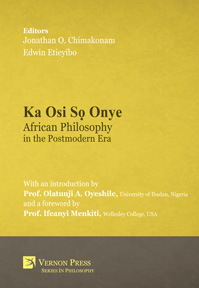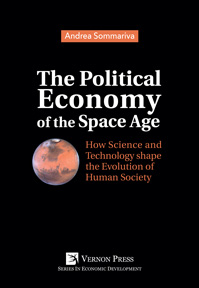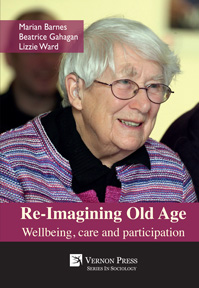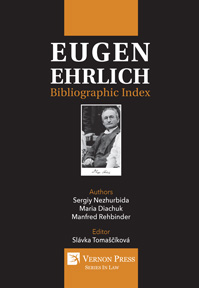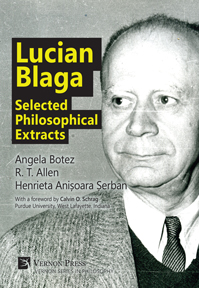Search
Browse
by Publication status
by Subject
Anthropology (26) Art (124) Business and Finance (26) Cognitive Science and Psychology (54) Communication and Journalism (45) Economics (62) Education (66) History (149) Human Geography (22) Interdisciplinary (42) Language and Linguistics (129) Law (16) Music Studies (18) Philosophy (157) Political Science and International Relations (103) Sociology (304) Statistics and Quantitative Methods (20)by Series
Series in Literary Studies (65) Series in Philosophy (59) Series in Education (51) Series in Sociology (42) Series in Politics (32) Series in World History (32) Bridging Languages and Scholarship (31) Series in Language and Linguistics (25) Cognitive Science and Psychology (20) Series in American History (20) Series in Philosophy of Religion (20) Series in Art (19) Critical Perspectives on Social Science (16) Series in Cinema and Culture (16) Curating and Interpreting Culture (15) Series in Critical Media Studies (14) Series on the History of Art (14) Series in Anthropology (13) Series in Business and Finance (13) Economics (13) Series in Music (12) Series in Communication (9) Series in Performing Arts (9) Philosophy of Personalism (8) Series in Law (8) Series in Economic Methodology (7) Series on Climate Change and Society (7) Women's Studies (7) Classics in Economics (6) Series in Economic Development (6) Philosophy of Forgiveness (5) Series in Built Environment (5) Series in Economic History (5) Series in Philosophy of Science (4) Series in Social Equality and Justice (4) Series on the History of Science (4) Serie En Estudios Literarios (3) Serie en Sociología (3) Series in Contemporary History (3) Series in Creative Writing Studies (3) Series in Design (3) The Interdisciplinary Built Environment (3) Serie en Comunicación y Medios (2) Serie en Historia (2) Series in Heritage Studies (2) Series in Innovation Studies (2) Series in Philosophy of Race (2) Serie en Ciencias Políticas (1) Serie en Entorno Construido (1) Serie en Estudios Culturales (1) Serie en Filosofía (1) Serie en Filosofía de la Ciencia (1) Serie en Música (1) Series in Classical Studies (1) Series in Economics of Technological Change (1) Series in Urban Studies (1)by Language
English Spanishby Author
Ka Osi Sọ Onye: African Philosophy in the Postmodern Era
Edited by
Jonathan O. Chimakonam, University of Pretoria, South Africa
and Edwin Etieyibo, University of the Witwatersrand
Availability: In stock
394pp. ¦ $67 £50 €57
This collection is about composing thought at the level of modernism and decomposing it at the postmodern level where many cocks might crow with African philosophy as a focal point. It has two parts: part one is titled ‘The Journey of Reason in African Philosophy’, and part two is titled ‘African Philosophy and Postmodern Thinking’. There are seven chapters in both parts. Five of the essays are reprinted here as important selections while nine are completely new essays commissioned for this book. As their titles suggest, in part one, African philosophy is unfolded in the manifestation of reason as embedded in modern thought while in part two, it draws the effect of reason as implicated in the postmodern orientation. While part one strikes at what V. Y. Mudimbe calls the “colonising structure” or the Greco-European logo-phallo-euro-centricism in thought, part two bashes the excesses of modernism and partly valorises postmodernism. In some chapters, modernism is presented as an intellectual version of communalism characterised by the cliché: ‘our people say’. Our thinking is that the voice of reason is not the voice of the people but the voice of an individual. The idea of this book is to open new vistas for the discipline of African philosophy. African philosophy is thus presented as a disagreement discourse. Without rivalry of thoughts, Africa will settle for far less. This gives postmodernism an important place, perhaps deservedly more important than history of philosophy allocates to it. It is that philosophical moment that says ‘philosophers must cease speaking like gods in their hegemonic cultural shrines and begin to converse across borders with one another’. In this conversation, the goal for African philosophers must not be to find final answers but to sustain the conversation which alone can extend human reason to its furthermost reaches.
The Political Economy of the Space Age
How Science and Technology Shape the Evolution of Human Society
Andrea Sommariva, SDA Bocconi, Milan, Italy
Availability: In stock
258pp. ¦ $61 £46 €52
This book provides answers to the questions of why human-kind should go into space, and on the relative roles of governments and markets in the evolution of the space economy. It adopts an interdisciplinary approach to answer those questions. Science and technology define the boundaries of what is possible. The realization of the possible depends on economic, institutional, and political factors. The book thus draws from many different academic areas such as physical science, astronomy, astronautics, political science, economics, sociology, cultural studies, and history. In the literature, the space economy has been analyzed using different approaches from science and technology to the effects of public expenditures on economic growth and to medium term effects on productivity and growth. This book brings all these aspects together following the evolutionary theory of economic change. It studies processes that transform the economy through the interactions among diverse economic agents, governments, and the extra-systemic environment in which governments operate. Its historical part helps to better understand motivations and constraints - technical, political, and economical - that shaped the growth of the space economy. In the medium term, global issues - such as population changes, critical or limited natural resources, and environmental damages – and technological innovations are the main drivers for the evolution of the space economy beyond Earth orbit. In universities, this book can be used: as a reference by historians of astronautics; for researchers in the field of astronautics, international political economy, and legal issues related to the space economy. In think tanks and public institutions, both national and international, this book provides an input to the ongoing debate on the collaboration among space agencies and the role of private companies in the development of the space economy. Finally, this book will help the educated general public to orient himself in the forest of stimuli, news, and solicitations to which he is daily subjected by the media, television and radio, and to react in less passive ways to those stimuli.
Re-Imagining Old Age: Wellbeing, care and participation
Marian Barnes, University of Brighton
et al.
Availability: In stock
214pp. ¦ $59 £42 €48
The understanding that humans are relational beings is central to the development of an ethical perspective that is built around the significance of care in all our lives. Our survival as infants is dependent on the care we receive from others. And for all of us, in particular, in older age, there are times when illness, emotional or physical frailty, mean that we require the care of others to enable us to deal with everyday life. With this in mind, this book presents the findings of a project that seeks to understand what wellbeing means to older people and to influence the practice of those who work with older people. Its starting point was a shared commitment amongst researchers and an NGO collaborator to the value of working with older people in both research and practice, to learn from them and be influenced by them rather than seeing them as the ‘subjects’ of a research project. Theoretically, the authors draw upon a range of studies in critical gerontology that seek to understand how experiences of ageing are shaped by their social, economic, cultural and political contexts. By employing a broad body of work that challenges normative assumptions of ‘successful’ ageing,’ the authors draw attention to how these assumptions have been constructed through neo-liberal policies of ‘active ageing.’ Notably, they also apply insights from feminist ethics of care, which are based on a relational ontology that challenges neo-liberal assumptions of autonomous individualism. Influenced by relational ethics, they are attentive to older people both as co-researchers and research respondents. By successfully applying this perspective to social care practice, they facilitate the need for practitioners to reflect on personal aspects of ageing and care but also to bridge the gap between the personal and the professional.
Eugen Ehrlich: Bibliographic Index
Edited by
Slávka Tomaščíková, Pavol Jozef Šafárik University in Košice, Slovakia
Availability: In stock
352pp. ¦ $66 £49 €56
The Bibliographic Index EUGEN EHRLICH is a guide through available materials containing information about the life, scientific, educational, legislative and social activities of the Austrian lawyer and university professor in the period of 1896-1918. Eugen Ehrlich was the Dean in 1901-1902 and 1908-1909 and the Vice-Dean of the Faculty of Law in 1902-1903 and 1909-1910, the Vice-Rector in 1907-1908, and the Rector of Franz Joseph University in Czernowitz in 1906-1907 (now Ukrainian: Chernivtsi). Moreover, ex officio, he was a member of the local parliament. The Index includes the foreword of the compilers, an introductory article, a selected basic chronology with the dates of the life and work of Eugen Ehrlich, and the four main structural parts: “List of works by Eugen Ehrlich”, “Eugen Ehrlich as editor”, “Literature about Eugen Ehrlich’s life and activity” and “Appendices: Documents from Chernivtsi University Scientific Library holdings”. “List of works by Eugen Ehrlich”, “Periodicals with Eugen Ehrlich's publications”, “List of used periodicals”, and “Name index” are all provided for the convenience of users. The “Name index” includes all the names recorded in the main text of the publication (numbers of bibliographic records of works devoted to individual persons are enclosed in parentheses). The book contains photographs of Eugen Ehrlich and photographs of materials linked to his life and activities. They have made the bibliographic index more attractive and more interesting for readers. The Index can help users find necessary documents and verify the accuracy of existing information, that it becomes a prerequisite for further research, and finally, it will be useful to all who are interested in Eugen Ehrlich’s life journey and scientific legacy.
Lucian Blaga: Selected Philosophical Extracts
Edited by
R. T. Allen et al.
Availability: In stock
190pp. ¦ $58 £44 €49
After the Editor's General Introduction, the extracts include central elements of Blaga’s metaphysics, general epistemology, philosophies of science, history, religion, language and especially metaphor, the experience of space and time, art, and finally culture which includes all of them, especially the presence in all of ‘style’ and distinctive ways of practising them. All these extracts are linked by his general epistemology, especially his distinction between two types of knowledge: ‘paradisiac’ or Type 1, which is that of everyday awareness and the current methods, concepts and presuppositions of the sciences of nature and humanity, plus mathematics and philosophy, and accumulates in ‘plus knowledge’ and resolves problems in standard ways; and ‘Luciferican’ or Type 2, which opens up the ‘mysteries’ of new realms of reality which do not fit the current methods, concepts and presuppositions, and so results in ‘minus’ knowledge, the awareness that there are things which at the moment we cannot understand. For these ‘mysteries’ new methods, concepts and presuppositions are required, which ‘abyssal’ categories can supply, ones below those we normally employ and may be aware of. It is part of man’s role in the cosmos to reveal such mysteries. They are also linked by Blaga's awareness of historical changes, especially ‘dogmatic aeons’ in which a prevailing framework of categories, etc., guides knowledge and research, and ones in which Type 2 knowledge dominates and new frameworks are eventually created. Each extract has its own Introduction which places it in the context of the rest of his interlinked philosophy. They show how Blaga, with both general themes and concepts and also with particular examples, combines much of the concerns and methods of Analytic and Continental philosophy, and how his historical perspective applied especially to modern times long before anyone spoke of 'postmodernism', and thus as in his lifetime.

